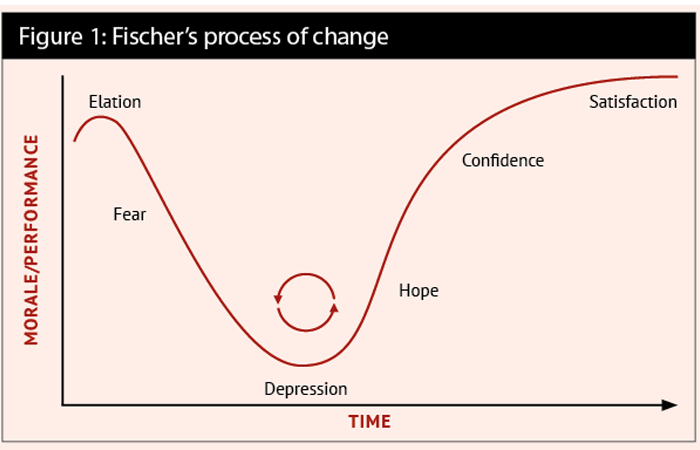Introduction
The best way to bring about change is to bring everyone along with you. But how does that work in practice? In business, change is a necessity; the status quo is never an option.
Stop moving and you die. There are many phrases that express this sentiment, but how do we prepare for the inevitable times of change? Do we look to maintain the skills we need to manage change as an essential part of our skill set?
In fact, we probably don’t prepare well at all. We focus on the clinical skills we need for patient care and possibly the business skills that are useful to help us manage the day-to-day. As a result, we let change just happen. Sometimes we fight it, but usually we don’t act to take the control that is needed for change to happen with the least stress or in order to gain the most benefit.
Take a look around you. Primary care has changed significantly. Our patients and customers have changed their attitudes and expectations of us ever since the pandemic began almost four years ago. And the national pharmacy contracts have changed significantly – NHS expectations have increased, with common ailments services being rolled out as well as schemes that aim to embed the sector more deeply in NHS pathways.
If we fail to recognise and respond, at best we put ourselves at a disadvantage. At worst, we could find that we don’t have a business.
In a storm, the flexible trees bend with the wind, but trees that can’t bend get up-rooted. Perhaps we should choose to change when faced with it, because we will put more energy into it – whether it is reorienting retail space to allow for social distancing, increasing services for shielded patients or sourcing new product categories – when we feel we have a choice. When change is forced upon us, it is more difficult.
We can also choose, to some degree, how we implement change. However limited our scope for choice, we will see an imposed change as more positive if we have an element of control.
When confronted with a period of change, we will have an emotional response to it first. This is down to neuroscience: we are primarily not rational beings.
The information we learn about the world comes into the cognitive areas of the brain through the limbic system, the emotional centre. We might be able to rationalise the nature and need for change, but our reaction is often visceral and emotional, and sometimes irrational.
The process we experience when we go through a period of change (see figure 1) is often called the change curve or Fischer’s process of change. When a change is announced, we can go through an elation phase. We are excited at the thought of some change and the possibilities it might bring. We then move into a phase when fear takes over. We realise that this might present challenges and we have to give up the way things are now.
As we become more concerned about the unknown and the scale of what we need to do, this leads to a period of ‘depression’. We lose the belief that we can achieve the results we want and any initial enthusiasm is lost. But then we start to see a chink of light at the end of the tunnel and move into a stage of hope. We start to believe we can achieve the results.
From here, it can go in two directions. Small successes may build until we become confident that we can achieve the results. Alternatively, small problems or difficulties may take us off course and delay our progress. We may spend some time cycling between hope and depression. The longer we spend in this process, the harder we find it to build the belief and motivation required to get us to a result. As we pass through the confidence phase, we need to build up momentum to get to the result. This needs a conscious last push.
All too often, we get to 90 per cent and lose motivation as something new takes our attention: we have almost finished the change required, but not completed everything. You may recognise the stages of this process from having gone through periods of change yourself.

